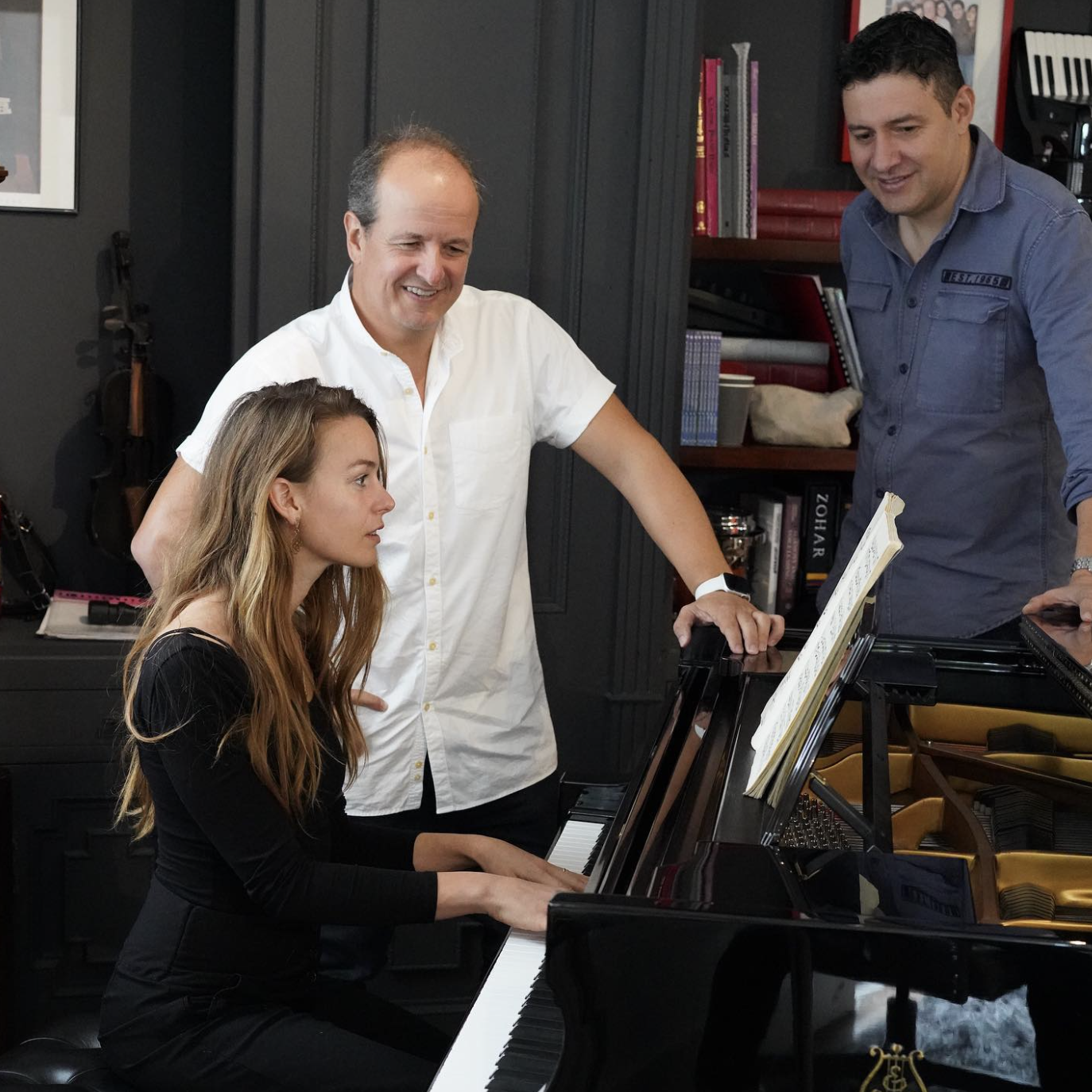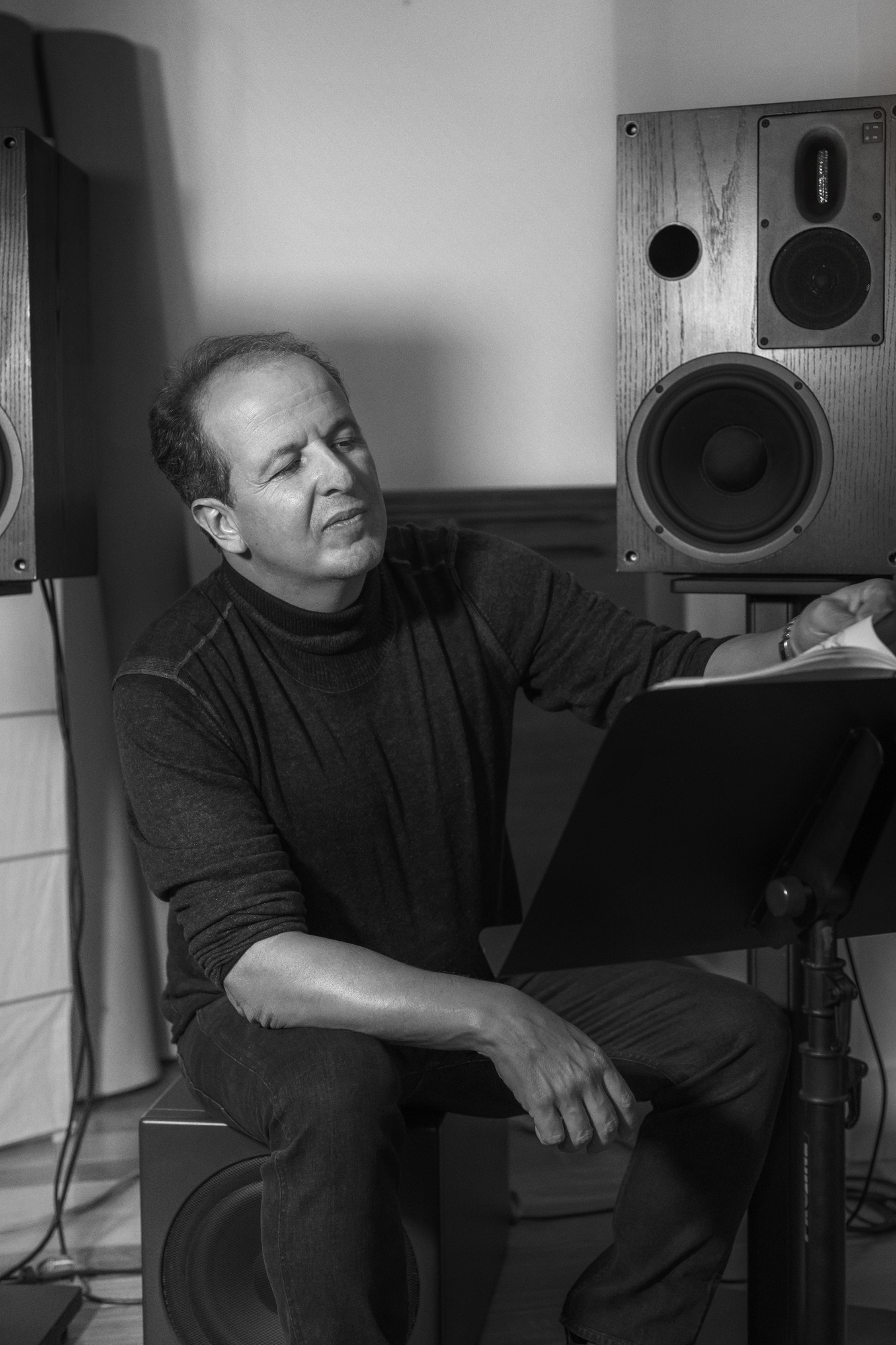Julio Reyes Copello, artistic director of the Ibagué Music Festival: "The difference between education and business is mentoring."

Julio Reyes Copello has plenty of performances, awards, and recognition: he's one of the most influential Colombians in the music industry as a composer, writer, producer, and arranger for Alejandro Sanz, Laura Pausini, Juanes, Ricky Martin, Estéfano, Thalía, Pablo Alborán, and Marc Anthony, to name a few stars. However, the credit this Cucuteño wants to highlight right now is as a "mentor."
At 56 years of age, with over fifty nominations and 14 Grammy and Latin Grammy Awards—including Producer of the Year—he has the authority to lead the Art House Academy, a musical training ecosystem he created that has transformed the careers of young artists in Latin America and the United States.
Now, as artistic director of the Ibagué Music Festival, Reyes Copello will bring a showcase of his experience to the capital of Tolima, the birthplace of folklore in the Andean region, where the sixth edition of the festival will be held from September 4 to 7.
"I really want to give Ibagué visibility and put it on the map, because I don't think that's been an opportunity," he said, visibly moved, in a chat with this newspaper via Zoom.

Julio Reyes Copello with students from his project. Photo: Courtesy of the Ibagué Music Festival
The producer and pianist announced that this year's festival will feature guests such as Spanish singer and composer Pablo Alborán . "We're going to do a conversation-concert format, and it's an incredible opportunity to inspire new artists, producers, engineers, and composers, because I'm going to accompany him on that journey, as he tells us where he got his signature style, his expressive resources, and how he built that magnetic identity that allows him to speak out and let you know who he is and make you want to live in his temple, his museum, his place," says Reyes.
His arrival as artistic director of the sixth edition of the Ibagué Festival is highly significant... I'm very excited because Ibagué has represented everything that respect for music and traditions is. The only music high school in Colombia is in Ibagué. There's such a special moment that aligns with everything I feel about music and the power of social transformation that music has. So, it seems perfect to be able to pursue my project because I'm very involved right now in education and in developing new talent.
What was your main motivation for opening your studio in Miami and sponsoring this Art House Academy project? I partnered with the Abbey Road Institute in London and brought it to America for the first time in an effort to bridge the enormous gap between traditional academia and reality.
And I started this with a lot of trepidation, but with the motivation to create a more up-to-date educational model, one more connected to reality. Look, the difference between education and the business of education is mentorship. I mean, I feel that the way much of the training is presented right now—not to disparage Berkeley—there's a design to make money, you know what I mean? I've had many interns graduate from all these places, and honestly, they didn't know much.
And is that experience what you're going to bring to Ibagué in September? Exactly. What we want to do right now at the Ibagué Festival is bring a little bit of that experience, where I have the moral authority to speak because it's working with Abbey Road. So I have a production, composition, and engineering program, which is a very contemporary profile of what a professional is today, in addition to a program for artists. Every year, I host five artists and 15 producers to ensure mentorship and direct contact. I started this alliance three years ago, and we've already won two awards for best new artist at the Latin Grammy Awards in two consecutive years: Joaquina, in 2023, and Ela Tauber, in 2024. Both are graduates of this program. Now I've truly overcome imposter syndrome, and I feel eager to share and bring this ecosystem experience to Ibagué for four days, showcasing what I believe to be an educational model more in line with reality.
I want to leave a legacy at the festival so I can inspire and create role models. At this point in my life, I'm very motivated by altruism. I think it's what frees you from everything, from anxiety, from fear. You have to be altruistic, and that's what I want to take advantage of during the festival.

Julio Reyes Copello in his Miami studio. Photo: OMAR CRUZ
My conflict is with traditional academia (...) I don't agree with having massive programs that graduate 100, 150 producers a year. To me, that's even irresponsible because the profession doesn't offer that much, and that's why we have so many musicians driving Ubers. I think the massive part of musical education should happen between the ages of 12 and 18. And the professional part should be handled like, for example, soccer: in a group, a breeding ground for the most talented, extraordinary people. In all of this, I feel that philosophically we also have to be very clear that artists, in my opinion, are messengers of beauty, they are preachers of beauty. And every artist has their own version of beauty, which is shaped by other artists who inspired them. Mine is shaped by Bach, Stravinsky, the Beatles, Peter Gabriel. I've become very passionate about protecting that. The artist has to get up every day, and their sole mission is to access that version of beauty, capture it in its purest state, and bring it to this dimension to make the music people need to hear, not the music they want. It's very different. That's where we're failing, in my opinion, as performers. In other words, the artist has to learn to protect their version of beauty from the expectations of the industry, from the expectations of their environment, from their family. In other words, it's a tough, solitary mission, and you have to know how to accompany the artists on that path. That's the most important message I want to bring to Ibagué right now: to spread a little of the message to this new generation of musicians and artists who are looking for opportunities, for identity, and who don't fall into the easy trap of repeating what's working, what's popular, but rather understand that they have the responsibility in their hands to make music that raises awareness, that generates empathy, that normalizes what should be normalized. I feel that many of the problems we are experiencing today are a product of the irresponsibility of the entertainment industry.
What's your relationship like with the artist, back in the studio? Because it's fundamental to this career. There are several approaches. Mine is to generate the complicity needed for the artist to truly access their best version. That best version is where the artist loves themselves; it's a huge act of self-love. I've always said that inspiration and that moment when one takes photographs of artists at their best, and my camera is a microphone, occurs when one generates that complicity, not intimidation. That's where the magnetic effect is generated. More than the producer intervening and creating intimidation, who is raising expectations, I feel that those moments also come from a deep gratitude. For me, inspiration is an act of profound gratitude for being alive, and it's in that moment that one realizes that one is eternalizing that moment of gratitude. That's my philosophy as a producer. I've made it my mission to be like a mirror that doesn't lie, but where the artist sees and loves themselves, because that's felt in the music, and that's why artists are messengers of beauty.
eltiempo





